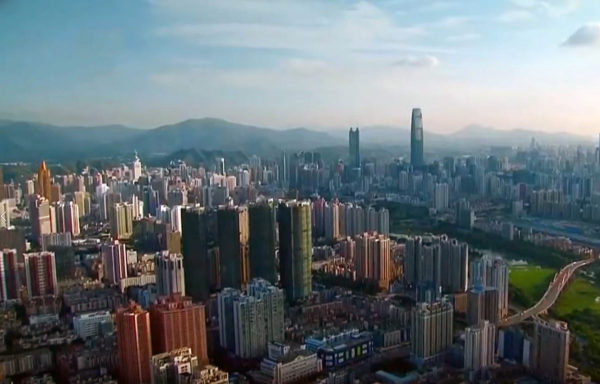◎ The introduction of the new State Council state asset supervision requirement signals trouble for the Jiang faction.
China’s State Council must submit a report on state-owned assets to the Standing Committee of the National People’s Congress (NPC) every year, according to a document by the Central Leading Group for Comprehensively Deepening Reforms (CLGCDR) issued on Jan. 14. The document is the first legislation issued by the Xi Jinping administration’s reform policy formulation and implementation body since the 19th Party Congress in October.
Document details:
1. The document cites earlier State Council observations that state-owned assets are not fully accounted, resulting in the NPC being unable to supervise the condition of state assets adequately.
2. The State Council must submit two types of reports to the NPC Standing Committee each year: A general report on the condition of various state assets, and a report on specific aspects of state assets, such as state-owned enterprises, state-owned financial institutions, state-owned non-commercial institutions, and state-owned natural resources.
3. The document also clearly outlines the reporting process and monitoring mechanism:
- Before deliberating the annual report, the NPC Standing Committee will organize inspections or special investigations of state-owned assets.
- During the deliberation of the report, the relevant State Council department directors must listen to opinions and answer questions.
- After the deliberation, the NPC Standing Committee’s deliberated opinions must be submitted to the State Council Research Office for processing.
- If the situation calls for it, the NPC Standing Committee may launch special inquiries to investigate specific issues, and pass legal resolutions.
The backdrop: After Deng Xiaoping’s death in 1997, the Jiang Zemin administration “privatized” state-owned assets in the name of reforming them. The peak “privatization” period occurred between 1998 to 2003, and coincided with the Jiang administration’s push to recruit businessmen and other “capitalists” into the Chinese Communist Party (CCP).
In what appeared to be an attempt to facilitate the “privatization” effort, the Jiang administration closed the State Council’s State-owned Assets Supervision and Administration Commission for six years. Influential officials, Party princelings, and former state-owned enterprise managers seized the window of deregulation to gobble up state-owned assets that were being sold to private investors on the market.
After many state-owned assets were privatized, their new owners started dismissing employees in bulk to lower operating costs. Labor disputes spiked: For instance, there were 33,000 cases of labor disputes in 1995, but 447,000 cases in 2006 and 690,000 in 2008.
Jiang Zemin dealt with the escalating social problems by intensifying suppression during his era of dominance (1997-2012). Between 2008 to 2012, the domestic security apparatus received huge sums in “social stability maintenance” funding: 405 billion yuan (2008), 474 billion yuan (2009), 549 billion yuan (2010), 624 billion yuan (2011), 702 billion yuan (2012). Indeed, domestic security spending outstripped defense spending in those years.
Why it matters: The introduction of the new State Council state asset supervision requirement signals trouble for the Jiang faction.
During the Jiang era, Jiang faction members controlled many Party-owned and state-owned businesses. For instance, purged China Telecom chairman Chang Xiaobing used to head China Unicom for 11 years. Jiang Mianheng, the elder son of Jiang Zemin, controlled China Netcom and China Unicom for many years through Shanghai Alliance Investment Ltd., the Shanghai municipal government’s investment arm. Meanwhile, former public security ministers Zhou Yongkang and Guo Shengkun both headed state-owned enterprises before entering politics.
Our take:
1. Xi Jinping is increasing the NPC’s supervisory power over the government apparatus. In some regards, the new procedure outlined in the CLGCDR document resembles that of a United States congressional oversight hearing.
2. By tightening supervision over state-owned assets, Xi is beginning to move against the Jiang faction members who control industries that are directly tied to the national economy.
3. Princelings in the financial sector who continue to resist Beijing’s policies could be targeted next under the anti-corruption campaign.












